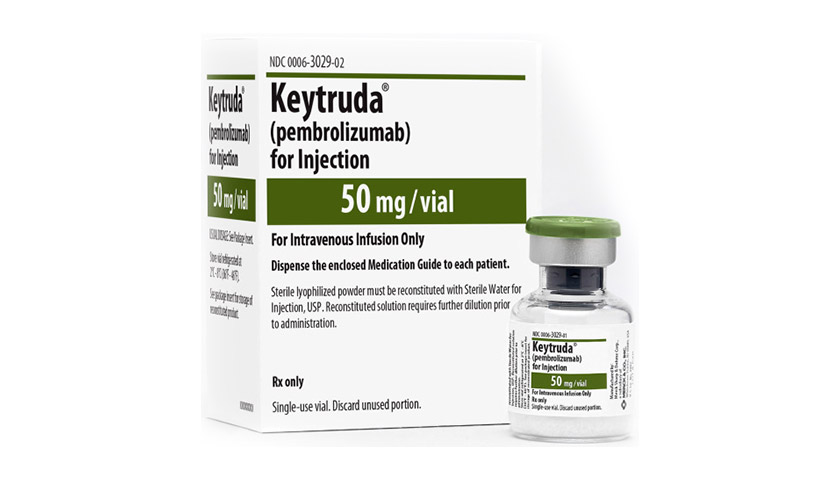Merck & Co's Keytruda produces mixed results in SCLC

Merck & Co’s Keytruda immunotherapy has produced mixed results in a phase 3 trial testing it in first-line extensive-stage small cell lung cancer (SCLC).
Roche’s Tecentriq is the only checkpoint inhibitor immunotherapy approved to treat this form of cancer, although AstraZeneca’s Imfinzi (durvalumab) is under FDA review in this use.
The US firm said it would present the findings at an upcoming medical meeting and would discuss results with regulators, although it stopped short of saying it would submit a filing for another indication.
In the 453-patient KEYNOTE-604 study Merck & Co tested Keytruda in combination with a chemotherapy regimen of etoposide plus either cisplatin or carboplatin.
The comparator group was treated with placebo plus a combination of etoposide and investigator’s choice of platinum or cisplatin chemotherapy.
Treatment with Keytruda resulted in a statistically significant improvement in progression free survival, increasing the likelihood of the disease being kept in check by 25%.
But the drug produced only a numerical improvement in overall survival, and a 20% reduction in chances of death was not statistically significant.
There were no surprises in terms of safety, with side effects in line with those seen in previous trials, Merck said.
The news follows NICE’s decision to reject Tecentriq as a first line treatment for SCLC, citing uncertainties about the drug’s overall survival benefit.
NICE also ruled out funding Tecentriq for SCLC via the Cancer Drugs Fund, which provides interim reimbursement until confirmatory trial data is available.
In the medium term this could clear a path for AstraZeneca’s Imfinzi (durvalumab), a PD-L1 rival, for which an FDA decision is due this quarter.
AZ has shared results of the CASPIAN trial with regulators showing Imfinzi plus standard chemotherapy reduced risk of death by 27% compared with chemotherapy alone.
While Imfinzi and Tecentriq have produced similar results, AZ has argued that Imfinzi could produce a longer lasting response.











